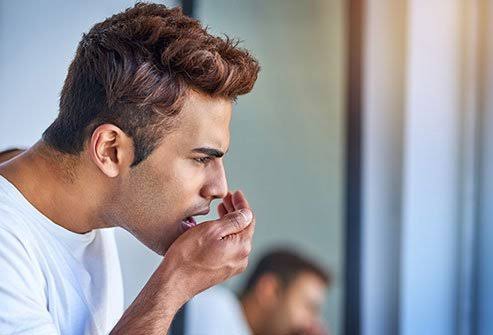During the COVID-19 pandemic, a major study found a dramatic rise in the number of adults in the United States experiencing signs of depression.

According to a latest study, the number of adults who suffer depression in the U.S. has tripled. Researchers estimate that more than 1 in 4 U.S. adults are now reported to have depressive symptoms.
8.5 percent of U.S. adults reported being depressed before the pandemic. As the country struggles with COVID-19, the number has risen to 27.8 per cent.
The study’s senior author is Prof. Sandro Galea, a dean at the Boston University (BU) School of Public Health, MA.
“Depression in the general population has been observed to at most double after prior large-scale traumatic events,” he says.
While in reaction to earlier crises, such as the 9/11 attack and the spread of Ebola in West Africa, reports of depression have increased, the magnitude of this recent finding is something new.
The research appears in the JAMA Network Open journal. Finance for the research was supported by the Rockefeller Foundation-Boston University 3-D Commission and the National Institutes of Health (NIH).
About the study
In response to COVID-19, the BU report is the first large-scale inquiry into America’s mental health.
The researchers collaborated with the leading instrument of mental health professionals for this purpose to measure the prevalence of depressive symptoms in the population: the Patient Health Questionnaire-9 (PHQ-9).
Before the start of the pandemic, the researchers used the 2017–2018 National Health and Nutrition Examination Survey (NHANES) as a reference indicator of depression rates. The survey was replied to by a total of 5,065 people.
These data were contrasted with the results of the study COVID-19 and the Effect on Mental Health and Well-being of Life Stressors (CLIMB), which surveyed 1,441 U.S. adults between March 31 and April 13, 2020. This research also used PHQ-9, making it easier for the population to compare improvements in the prevalence of depression.
Although the 2020 survey took place relatively early in the pandemic, stay-at-home advisories and shelter-in-place orders were in place for around 96 percent of the population by the time it was completed.
Reasons behind depression
Concerning the different stressors associated with the pandemic, the CLIMB survey also asked participants. The death of a friend or loved one and financial issues, such as the loss or possible loss of personal income, were included in these stressors.
The survey showed that depressive symptoms had increased across all age groups in response to the pandemic.
The primary driver of depression was anxiety about personal financial well-being, according to the survey participants. “Persons who were already at risk before COVID-19, with fewer social and economic resources, were more likely to report probable depression,” lead study author Catherine Ettman says.
Specifically, the team found that people with savings of less than $5,000 were 50 percent more likely to experience depressive symptoms than those who had more.
Ettman claims that the study illustrates the importance of a society where there is a strong safety net, where people have equal jobs, where there are fair policies and procedures, and where families can not only survive on their salaries, but also save money in the future.
Ettman proposes as to what the authorities can do now to reduce the emotional toll of the current pandemic in the United States:
“There may be steps that policymakers can take now to help reduce the impact of COVID-19 stressors on depression, such as eviction moratoria, providing universal health insurance that is not tied to employment, and helping people return to work safely — for those able to do so.”
At the very least, Ettman hopes that her research will bring some relief to individuals coping with depression by helping them know that they are far from alone.






